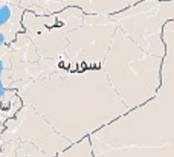
In her book “A Problem from Hell,” Samantha Power writes about May 13, 1994, when Paul Simon, chairman of the Senate Foreign Relations Subcommittee on Africa, and Sen. James Jeffords, his Republican counterpart, telephoned United Nations Gen. Roméo Dallaire, the force commander for the U.N.’s Assistance Mission in Rwanda, in Kigali.
Simon and Jeffords asked Dallaire what they could do to stop the looming genocide. Dallaire believed that a commitment of 5,000 troops could prevent it.
Immediately, the two senators wrote the Clinton White House to ask the administration to call on the U.N. to act. Their letter said in part: “Obviously there are risks involved but we cannot continue to sit idly by while this tragedy continues to unfold.”
The senators received no reply.
In less than eight weeks, 800,000 Rwandans were massacred.
In hindsight, former President Bill Clinton acknowledges we could have done more.
What is happening in Syria today may not be a genocide by classic definition, but it is one of the biggest humanitarian crises of our time.
The thousands of dead and injured have reached a level of numbing proportion. Almost half of Syria’s 23 million people have been displaced since the war began.
Every few months Zaher Sahloul, a Syrian-American who lives near Chicago, asks to meet with me. I welcome him knowing that the meeting will be heartbreaking.
Sahloul brings in Chicago-area doctors who have risked their lives crossing the Syrian border to provide medical care to the victims of this four-year conflict. They show me photos of children maimed and killed by Bashar Assad’s barrel bombs in Aleppo.
These bombs are particularly horrific weapons of the Syrian president’s regime. They are old rusting containers filled with nails, shrapnel and explosives that are dropped on civilian neighborhoods with intentionally devastating effect.
Often, as rescuers move in to help those injured in the initial attack, additional barrel bombs are dropped. Even more frightening, these bombs are increasingly being filled with deadly chlorine gas.
In 2014, the U.N. Security Council passed a resolution calling for a halt to the use of barrel bombs in urban areas. Yet since then, an estimated 2,000 more have been dropped and scores of Syrian civilians have been injured or killed in these horrific attacks.
Sahloul, his brave colleagues and so many others in Syria try to bring some humanity and medical care to these devastated areas. But they are struggling against the odds.
Hospitals are often the military targets of the Assad regime. Physicians for Human Rights has documented more than 230 attacks on medical facilities since 2011, resulting in the deaths of 600 medical personnel.
The full article continues at http://www.politico.com/magazine/story/2015/05/history-repeating-itself-with-syria-117800.html on Politico’s website.

